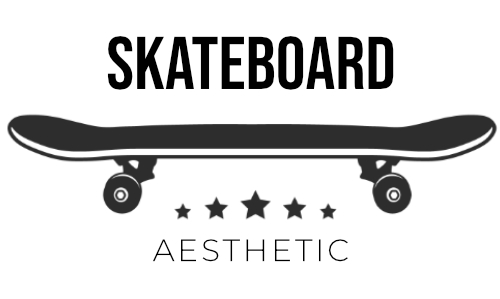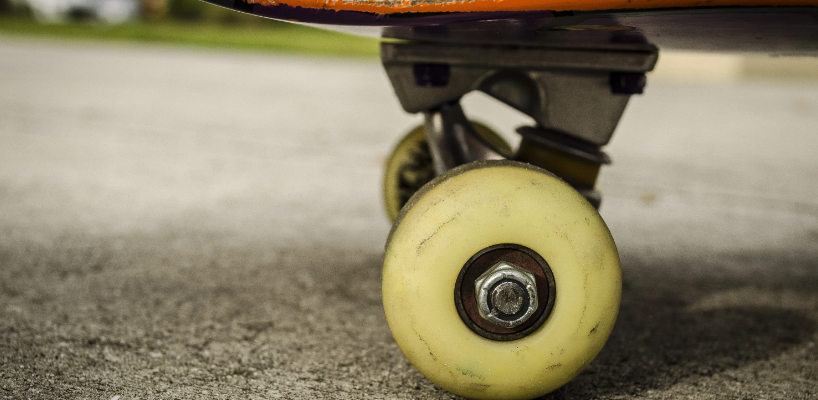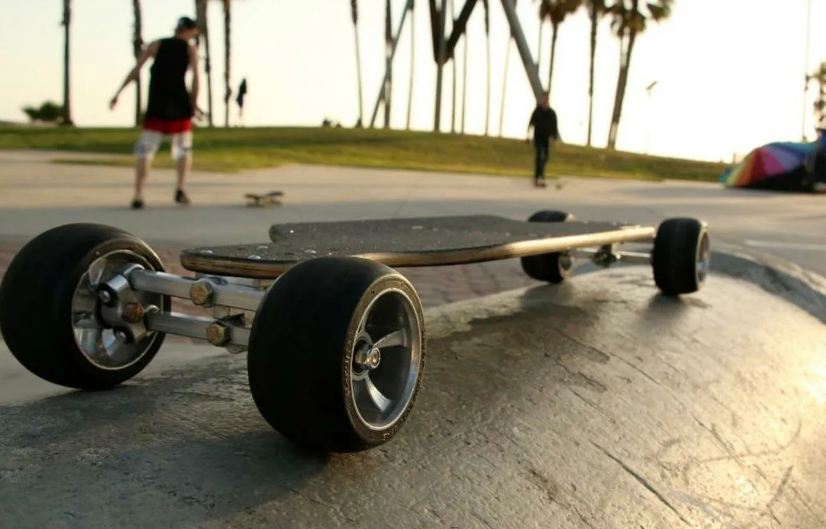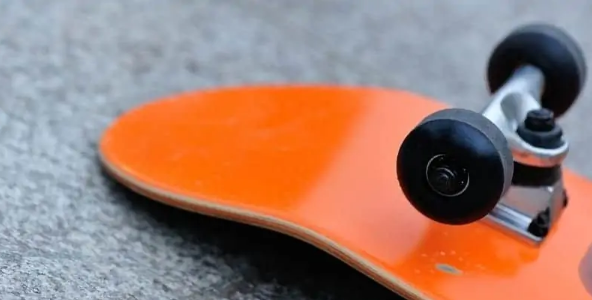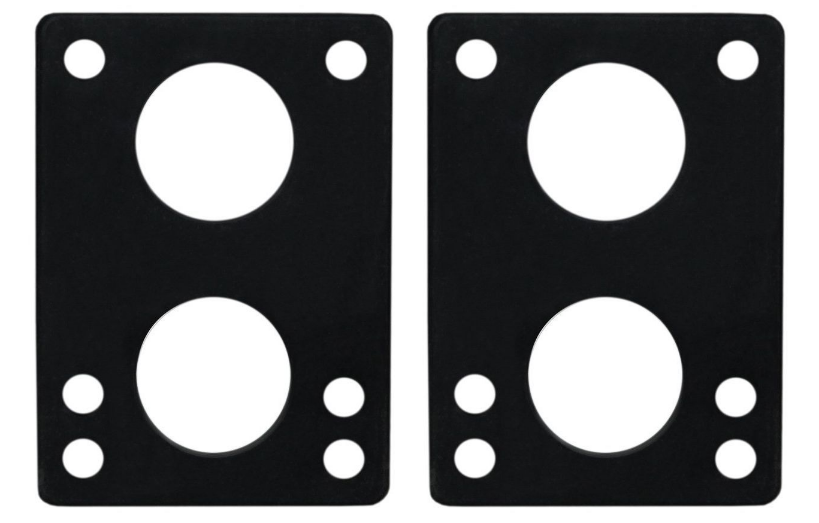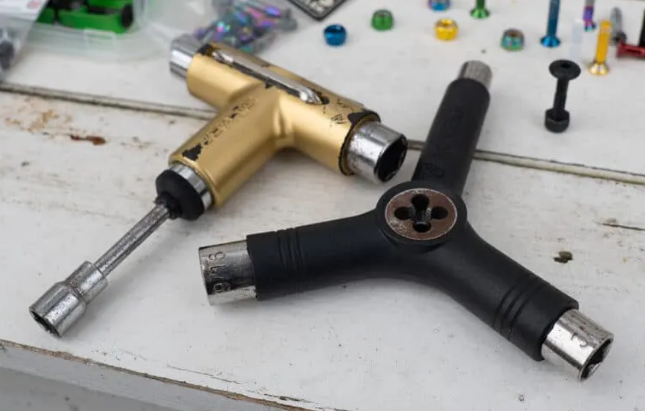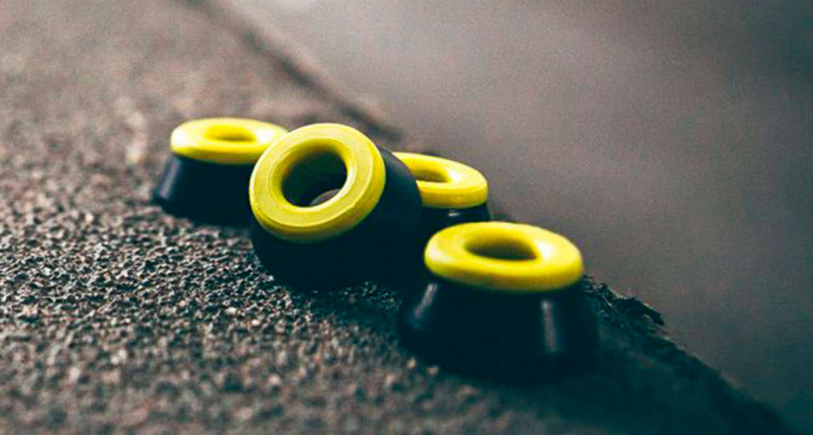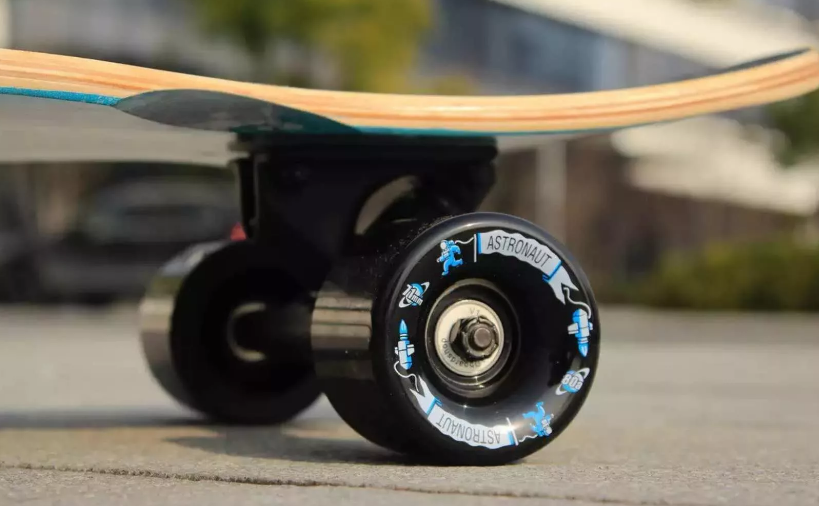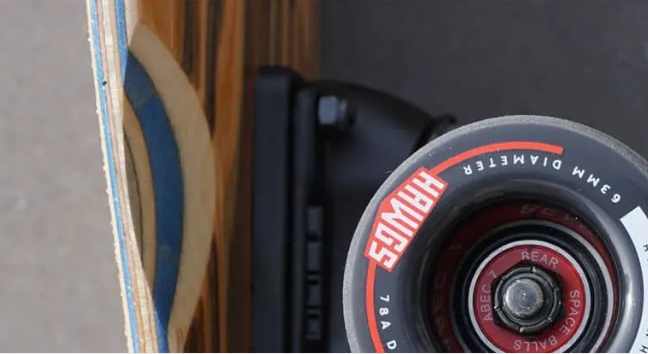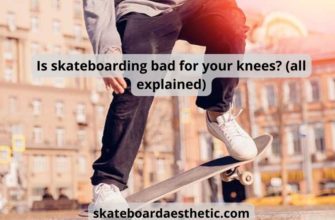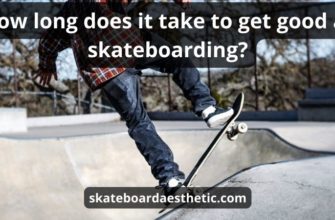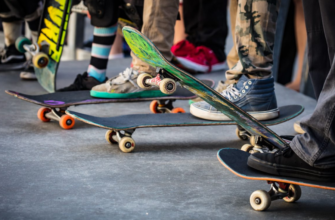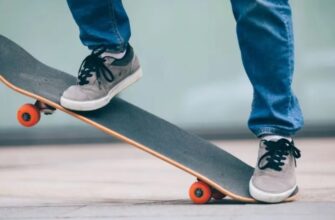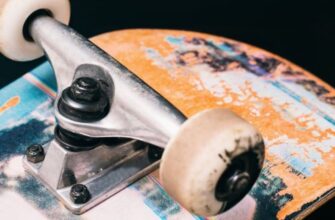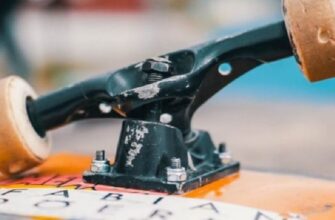Nothing is more unpleasant than landing a trick and having your skateboard abruptly come to a stop. It affects more than just technical skateboarding. A skateboard wheel bite happens to longboarders and cruisers too, usually when you least expect it.
When the wheels make contact with the skateboard deck’s bottom, wheel bite occurs. The wheels abruptly cease turning and block. This causes the skater to become unbalanced and may possibly cause them to crash off the board.
Wheel bite is extremely common, and there are simple remedies for it. Sometimes, as long as your skateboard doesn’t completely block, it doesn’t even have to be a terrible thing.
Unfortunately, there isn’t a specific distance that should be left between the skateboard deck and the wheel. This is due to the fact that there are a lot of factors that can affect how near the deck can get to touching your wheels when you turn or complete a trick.
Reasons why a skateboard wheel bite occurs
When a wheel makes contact with the deck while making a turn, the dreaded wheel bite happens and the vehicle stops moving. A rider may become unbalanced as a result and/or lose control of the board.
How to prevent wheel bite?
On a skateboard, there are numerous ways to avoid wheel bite, some solutions being simpler than others. Wheel bite cannot be avoided by maintaining a specific distance between your wheels and the surface. It depends on the style of skating, your weight, the softness of your bushings, and how loosely you skate your trucks.
Here are some of the details on how to prevent wheel bite.
Consider riser pads
Riser pads are typically needed for skating wheels larger than 56mm. The most effective approach to avoid wheel biting is probably with riser pads.
Riser pads are blocks made of rubber or hard plastic that increase the space between the skateboard deck and the wheels. The additional space between the deck and wheels also enables sharper turning. Shock pads or rubber riser pads stop pressure cracks from harsh impacts.
Check out my riser pad guide to learn more about riser pads and why I don’t suggest using them for skateboards. Additionally, skateboarders shouldn’t be concerned about riser pad durometers or angled riser pads. It applies to cruisers and longboards but is not important for traditional skateboarding.
Details
Getting riser pads will give you a fighting chance against wheel biting if you’re skating wheels larger than 55mm. For instance, when landing airs to flat, I frequently experienced wheel biting when skating a 56mm wheel on my bowl setup. It made a huge difference once I installed a riser to give my wheels some extra room.
The riser pads, which mount between your trucks and the deck, are just a slab of plastic. It raises your deck to make more room for your wheels, enabling you to mount bigger wheels on your setup. They not only make additional room, but they also effectively stop pressure fractures in your deck from harsh blows.
Tighten your trucks on the skateboards
By adjusting the tightness of your skateboard trucks, you can prevent wheel bite in one of the simplest ways possible. Wheel bite is frequently caused by loose trucks, and this issue is simply fixed by utilizing a skate tool to tighten the kingpin nut.
The drawback of this approach is that it reduces the responsiveness of your skateboard. When you pivot, the resistance on your trucks will increase. At first, it could feel a little stiff, but you’ll get used to it.
Advantages of the method
Tightening your trucks can prevent wheel bite quickly (and cost-effectively), as opposed to replacing your wheels. Your trucks might move side to side more easily when they are overly loose. Regardless of your tire diameter, if you put a lot of weight on one side with this little resistance, there’s a significant probability your wheel may contact your deck. Thicker riser pads can help here.
Tightening your trucks will increase the resistance your trucks experience while attempting to pivot and will put extra pressure on your bushings. This will initially make your skateboard seem stiffer to turn, but with enough practice, it is a simple technique to avoid wheel biting. Depending on your wheel size, adjust thicker riser pads and harder bushings for avoiding wheel bite.
Obtain new bushings
Consider different bushings if adjusting your skateboard trucks doesn’t work. Although they are frequently forgotten, bushings play a significant role. The bushings that can support your weight are the greatest. Wheel bite is common if you are too heavy for your skateboard setup and requires stiffer bushings for a heavier skateboarder. Harder bushings are to be used in the adjusting process, they will depend on the wheel size.
Purchase smaller skateboard wheels
Getting wheels with a reduced diameter is the first step in preventing wheel biting. Smaller wheels simply provide more room between the deck and the wheel, which reduces your risk of experiencing wheel bite regardless of your configuration. Your greatest option for lowering your risk is to use wheels with a diameter between 51mm and 53mm.
There may not always be adequate space between your wheels and the deck if they are too large. Wheel bite will occur if you ride 60mm wheels without risers.
Conversely, bowl and pool skaters favor bigger wheels. When pumping a bowl, you must maintain your tempo; otherwise, it will be tiresome.
Briefly said, smaller wheels accelerate quickly but have a lower top speed than larger wheels, which also hold speed better. Although wheel durometer also contributes to this to some extent, wheel diameter has the greatest impact on speed. You move more quickly the bigger the wheel is.
A smaller wheel will work if you skate on flat surfaces and the streets because you won’t need to move at the fastest possible speeds. A smaller wheel is a clear substitute because it will be lighter and a little bit simpler to perform stunts with. In this situation, a 51mm–53mm wheel is what I’d advise.
When speed is important?
When it comes to bowl and transition skating, things change. When skating this way, maintaining speed is crucial for maintaining your momentum as you carve and pump. It is much simpler to maintain that kind of speed with larger wheels.
Even though you would theoretically have a decreased likelihood of wheel biting in this scenario, changing to a smaller wheel isn’t worth the slower speeds. Simply switching from a 55mm–56mm wheel to a 51mm wheel will significantly slow you down, and you’d probably immediately regret your wheel purchase.
Try the next technique instead if purchasing a smaller set of wheels isn’t appropriate for your skating.
If wheel bite is a problem, technical street and flat ground skaters should think about smaller wheels. But there are other choices to take into account.
Purchase a deck with wheel wells (or DIY)
You can lower your board to the ground using wheel wells without changing the wheels or installing riser pads. You won’t have to give up stability or control in this manner. You’ll have more stability and control thanks to the reduced center of gravity.
Although very outdated, wheel wells are still often used on broader setups, including obviously cruisers and longboards.
On-street skateboards and wheel wells are relatively uncommon, and I have yet to meet a street skater who has sanded down his deck and constructed his own wheel wells. A fantastic option for people who prefer to cruise and carve but not the best for flat surfaces or street skating.
Conclusions
I sincerely hope you are tried preventing wheel bite; frequently, wheel bite can be avoided with a few minor adjustments. Waxing the wheel bite places is one thing I neglected to mention. Although it works well, there is a significant drawback.
Wheel bites often occur when you land a trick on the side of your deck without even realizing it. You can’t prevent wheel bite if you don’t see anything. When the issue actually impairs your ability to skate, fix it. Read about how to look cool wearing a skateboard helmet
FAQs:
- Is wheel bite common?
Though it happens frequently, some people experience wheel bite more than others. I am confident that you will find a solution that works for you using these 5 tips. Wheel bite is unavoidable, but you can stop your wheels from blocking on the skateboard trucks.
Due to setup modifications made by some skateboarders, they are more likely to experience wheel bite. Wheel bite will happen more frequently for skaters riding very loose trucks than for those riding tight trucks. When using 56mm wheels, a skater is more likely to experience wheel bite than when using 52mm wheels.
Undoubtedly, your weight, the abrasiveness of your bushings, and the style of skating all affect performance.
- Why do I get wheel bite?
Wheel bite is still rather prevalent even with all safety measures in place, for instance, if you fall heavily on one side of your board. Your deck will occasionally pinch against your wheels if you apply enough pressure.
Don’t overthink it if you have wheel bite once or twice; it was probably an isolated incident. However, if you find that you consistently get wheel bite when skating, it may be time to think about making some adjustments.
- Do I need risers with 56mm wheels?
While not necessary for smaller skate wheels, 1/8″ shock pads can always be used to assist decrease vibration and stress cracks to your board. Risers are often advised for larger wheels 55 mm and beyond to avoid a skateboard wheel bite.
- Is wheel bite normal on a skateboard?
It happens even with professional skateboarders. To prevent wheel bite read the article.
- How do you get less rim bites?
To prevent wheel bite on your skateboard, you should try to change the wheels to a smaller size. Yes, get the smaller wheels. You can also try to adjust the tracks, obtain new bushes, and do other steps described in the article here.
- How do I stop my skateboard wheels from biting?
If you wonder how to prevent wheel bite, here are the tips in short:
- You might want to add riser pads.
- Tighten the trucks on your skateboard.
- Switch out the bushings.
- Buy more compact wheels.
- Purchase a deck that has wheel wells.
